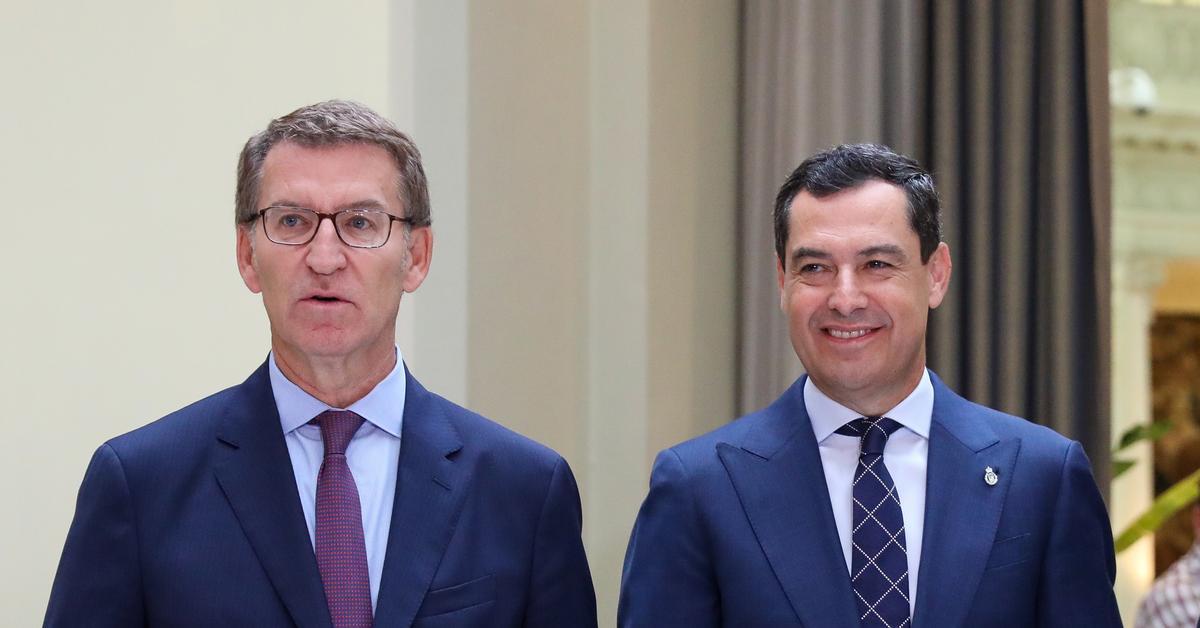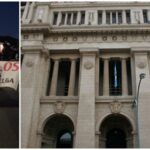
Realism is imposed on Génova street. From the “end of stage” and the “national plebiscite”, the municipal and regional elections have now become only an important test, but not a decisive one for the PP of Alberto Núñez Feijóo. The popular ones aspired weeks ago to win by far the PSOE in number of votes in local elections, to double the number of provincial capitals governed under their acronym and to wrest from the Socialists in autonomous bastions as important as Castilla-La Mancha, Extremadura or Valencia.
This out doors. In the internal, the enthusiasm is mitigated and the most prominent leaders admit that the wear and tear of Pedro Sánchez “may have a negative influence on the expectation of voting for some of his most important barons, but not so much on the change of political sign in the city councils, where the electorate votes with exclusively local keys”. Hence the national leadership, which is preparing a campaign for May around the internal division of the coalition government and the most controversial issues of its management such as the law of only yes is yes or the reform of the crimes of sedition and embezzlement, have started to lower expectations. Be it tactical or fear that a result that is not too buoyant could undermine the leadership of Alberto Nuñez Feijóo, the truth is that prudence has been imposed around the possible results and that almost no one talks about a “motion of no confidence” in the polls against the President of the Government.
In any case, it will be the first electoral test that the PP faces after taking over its leadership. In 2019, with Pablo Casado at the helm, the popular ones were left with more than a million votes, 2,000 councilors and seven points from the result obtained by the socialists, who were the first force with 29.26% of the votes in local elections . Now they only aspire to gain votes in municipal councils, to gain an absolute majority in Murcia and if anything to take over the regional government of La Rioja or that of Aragón while they see gaining institutional power in Valencia as more open and they no longer even mention the governments from Extremadura or Castilian-Manchego, where Fernández Vara and Page remain strong in the polls.
What the Madrid leader is at stake
The data handled by the Socialists do not glimpse, however, a map like the one drawn by the most optimistic forecasts of the popular ones. In Ferraz they do not see any of their main provincial capitals at risk and neither do any of the regional governments, “not even that of Aragón” where the candidacy for the regional presidency of the mayor of Zaragoza, Jorge Azcón, “is not pulling as expected in Genoa”, affirms a member of the federal leadership of the PSOE. Organization has polls in which the socialist brand would rise compared to 2019 in Navarra, Extremadura, Castilla-La Mancha and the Canary Islands. In Murcia, where the possibilities are slim for the PSOE, according to Ferraz’s calculations, the PP will continue to need Vox, “which is where it is strongest and where those of Abascal eat up a large part of the popular vote.”
Sources from the national leadership of the PP admit, for their part, that they see Isabel Díaz Ayuso from Madrid in “clear regression” and that, today, she would be far from the desired absolute majority, for which reason the Madrid extreme right could demand the entry into the Government that he did not request in 2021, despite the fact that his votes were necessary to invest the controversial baroness. Ayuso is not only playing at the May meeting for her continuity at Puerta del Sol, but also maintaining a monocolor government and whatever her aspirations may be in the post-Feijóo era.
The only certainty inside and outside the PP is that Feijóo is a one-shot candidate and that if he fails to reach Moncloa on his first attempt, next December, he will not continue as head of the national leadership. Given this scenario, the Andalusian Moreno Bonilla and his historic absolute majority of the past 19-J, would be much better positioned for the national runway than an Ayuso in a minority and that registers a notable loss of electoral support next May. The social response to the deterioration of Madrid’s public health and, above all, the way in which Sol’s tenant has decided to ignore the problem is a matter of special concern at the national headquarters in Genoa. “The difference, however, with Casado is that Feijóo is a leader who does not interfere in the management or organic planning of his barons,” says an interlocutor from the national leadership. This is something that the national president already transmitted as soon as he landed in Genoa to all the regional leaders, to whom he promised that they would gain autonomy in the preparation of their electoral lists and in the negotiation of their government agreements.
“Do not blend in with Vox”
The same interlocutor, convinced that “there is a lot of anti-Sanchismo in the streets, is more optimistic about his party’s national prospects than about the May results, although he admits that the Prime Minister is “a tough nut to crack” for its accredited ability to rise from its ashes. Even so, he defends that Feijóo is “a transversal ideological candidate” who, also unlike Casado, Vox’s agenda will not deviate from his path or from his strategy of trying to fish in the socialist fishing ground. The Galician understands, and this has been conveyed to his closest team, that the solution to the challenge of the extreme right “is not to blend in with it, but to present a more solid alternative” and to expand the electoral perimeter through the center of the board.
The objective for the general elections goes through what the national headquarters call “become a Moreno” and that is nothing more than to start a notable transfer of socialist voters for the coffers of the PP. The president of Andalusia, Juanma Moreno, scratched up to 17.5% of the votes last June among those who supported the PSOE in 2018, in addition to 33% of those who had voted for Vox. Those of Feijóo calculate that 14% of the socialist vote (952,000 voters) disappointed with Sánchez “because of his parliamentary alliances” and for what they consider “misgovernment within the coalition”, could go to the PP. A figure that, according to the last CIS published this Friday, today would be approximately 8%, just over 500,000 ballots, a transfer that the PSOE maintains that it has been reduced as “the lack of solidity” has become known. in Feijóo and that, in the coming months, “it will be further reduced with government action.”
“A transversal and broad-spectrum party”
Whatever the transfer of the vote that is finally consolidated at the polls, Feijóo wants a transversal and broad-spectrum PP, this is “a center-right party that the left can vote for.” This is how a popular person defines him, knowledgeable about the national president’s agenda and his usual contacts “with prominent socialists”, beyond those he has had for years with former president Felipe González, whom the Galician acknowledged having voted for in 1982.
The signing of the Basque Borja Sémper and his return to the front line of the PP with which Feijóo, in addition to the alleged message of moderation and centrality, is serving the national president, according to popular sources, as a catalyst “with socialists rebounded” with Sánchez and discontent with the political alliances of the government coalition. The one who was the spokesman for the PP in the Basque Parliament and abandoned politics in Casado’s time tries to expand the perimeter of action of a party that, since Vox’s appearance on the political scene, has embraced on many occasions the argument of the far-right and turned to positions that cannot be compared with European conservatives. Now, they trust in the “punishment vote” for Sánchez and his coalition with United We Can by the so-called temperate socialism.
——————
If you’ve gotten this far, keep reading.
elDiario.es is financed by the contributions of 60,000 members who support us. Thanks to them, we can write articles like this one and that all readers – including those who cannot pay – have access to our information. But we ask you to think for a moment about our situation. Unlike other media, we do not shut down our journalism. And that makes it much more difficult for us than for other media to convince readers of the need to pay.
If you get information from elDiario.es and you believe that our journalism is important, and that it is worthwhile for it to exist and reach as many people as possible, support us. Because our work is necessary, and because elDiario.es needs it. Become a member, become a member, of elDiario.es.
Source: www.eldiario.es

